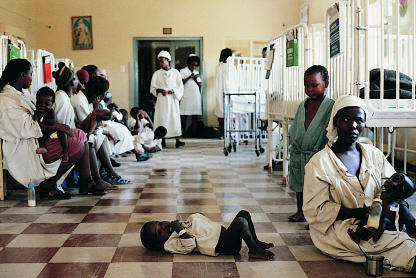In the debate opened by the BMJ on whether research is ethical if it meets the standards of the Declaration of Helsinki but is conducted without informed consent, Len Doyal provides some powerful arguments for why the request for informed consent should be inviolable.1
While vigorously defending the inviolability of informed consent, he concedes that it is not necessary in certain circumstances. An uncontroversial case is that of incompetent patients (although even here other rigorous requirements must be met). However, the other exceptional cases he mentions seem to have some unfortunate implications for his defence of informed consent. He thinks that for epidemiological research on patient records the informed consent requirement may be waived if certain conditions are met: (a) that access to the clinical record is essential to the research; (b) that consent is not practicable; (c) that the research is of sufficient merit; (d) that it may benefit the patient whose records are studied; (e) that, when possible, the researchers are unable to connect the records with the patient’s identity, but that where this is not possible, patients will not be identifiable when the results are made public; (f) that it is not anticipated that contact will be made with the patients as a result of research findings; and (g) that access is restricted to specific categories of information that have been approved by the local ethics committee. Professor Doyal thinks that similar conditions should apply to research on stored tissue from unconsenting anonymous donors.
The South African HIV study, which Professor Doyal criticised for not obtaining patients’ informed consent for HIV tests, involved performing a blood test and not simply viewing records,2 and thus does not precisely slot into one of his three exceptional categories. However, this point does not seem to be a pivotal issue: one can, after all, have consent to draw blood without having consent to test it for HIV seropositivity. Drawing blood without consent would introduce a problem not permitted by the list of conditions Professor Doyal stipulates, but, assuming that there was consent to draw blood, the anonymous testing of that blood for HIV in the Natal study meets all the conditions enumerated above. Condition (f) lends itself to variable interpretations, but it seems to us that merely informing patients that they had been subject to an HIV test as part of a study does not constitute contact with patients as a result of research findings. Telling them the result of the test, and counselling for HIV positive status, would constitute such contact, but it would be with the consent of the patients.
It seems then that Professor Doyal gives with one hand what he takes with another. He criticises the South African study for failing to obtain informed consent, yet this study meets the very conditions that he thinks he must obtain in those exceptional cases in which informed consent is not necessary.
The crucial condition is whether the researcher can link the medical record to the identity of the patient. We agree that informed consent is unnecessary in research that involves no withholding or providing of an intervention and which meets the other conditions but where the identity of the patient cannot be linked, even by the researcher, to the medical record. Knowing that there is an unidentified person who has HIV does not inhibit that person’s autonomy or violate his or her privacy. By contrast, obtaining the knowledge that an identifiable person has HIV is an invasion of the person’s privacy if he or she has not consented to this information being obtained. Thus, the difficult case is when the researcher gains sensitive information about a research subject without consent. In such a case informed consent is important, and if it is to be overridden a strong argument will have to be made. Professor Doyal’s conditions suggest that he may have sympathy for the view that the requirement for informed consent may be overridden in this case, but his arguments suggest that no such exception should be made. We can think of no compelling argument for why an exception should be made in this case.
What are the implications of this for the Natal study? The ethics committee and researchers went to great lengths to ensure that all but one of the researchers were prevented from connecting HIV status with the identity of patients. Moreover, all means of linking the HIV tests with the identity of patients were destroyed at the end of the study. If we are correct that there are no compelling arguments to justify such unauthorised violations of privacy, then the Natal study is ethically defective, even though to only a limited degree. This shortcoming is especially regrettable given that even the limited invasion of privacy could have been avoided by encoding patient identity and thereby ensuring that none of the researchers could have been able to establish a link between a patient’s identity and HIV status. Even if one thinks that minor invasions of privacy or other limitations on autonomy are justified if they can bring great benefits, one must agree that it is better if these minor intrusions can be avoided.
Supplementary Material
Figure.
Are the criteria for informed consent the same in Third World situations as in Western countries?
Figure.

A longer version of this article is available on our website
References
- 1.Doyal L. Journals should not publish research to which patients have not given fully informed consent—with three exceptions. BMJ. 1997;314:1107–1111. doi: 10.1136/bmj.314.7087.1107. [DOI] [PMC free article] [PubMed] [Google Scholar]
- 2.Bhagwanjee S, Muckart D, Jeena P, Moodley P. Does HIV status influence the outcome of patients admitted to a surgical intensive care unit? A prospective double blind study. BMJ. 1997;314:1077–1084. doi: 10.1136/bmj.314.7087.1077a. [DOI] [PMC free article] [PubMed] [Google Scholar]
Associated Data
This section collects any data citations, data availability statements, or supplementary materials included in this article.



